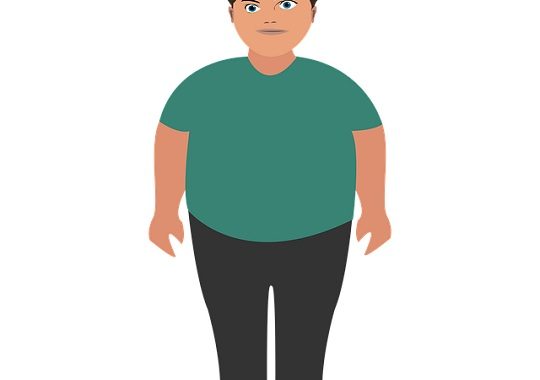
In a world where fast food is abundant and sedentary lifestyles are prevalent, the battle against obesity rages on. Obesity is not just a personal health issue; it’s a societal concern that demands attention and action. With rates of obesity soaring globally, it’s imperative to promote awareness and equip individuals with the tools they need to combat this growing epidemic.
Understanding the Problem
Obesity, marked by excessive body fat accumulation, elevates the risk of heart disease, diabetes, and specific cancers. Despite widespread awareness of these health hazards, obesity rates persistently rise, impacting individuals of every age and background. Its pervasive reach extends from young children to older adults, highlighting the urgency of addressing this complex health issue across all demographics.
�
Promoting Awareness
Promoting obesity awareness is crucial in combating this pervasive issue. By educating individuals about the causes, risks, and consequences of obesity, we can empower them to make healthier choices and take control of their well-being. Here are ten effective ways to promote obesity awareness:
- Education Campaigns: Education campaigns utilize diverse channels like social media, television, and community events to spread awareness about obesity and its health implications. Through engaging content and interactive platforms, these campaigns educate the public about the causes and consequences of obesity.
They emphasize the importance of healthy lifestyle choices, including balanced nutrition and regular exercise. By reaching a wide audience, education campaigns empower individuals to make informed decisions about their health, fostering a culture of prevention and proactive health management within communities.
- School Programs:
School Programs: Introducing comprehensive obesity prevention initiatives within school curricula, integrating lessons on balanced nutrition, regular physical activity, and fostering healthy lifestyle habits. These programs encompass interactive activities, workshops, and educational materials tailored to different age groups, aiming to instill lifelong habits from an early age.
Additionally, they may include initiatives such as promoting nutritious school meals, incorporating physical education into daily schedules, and encouraging active play during recess. By engaging students in hands-on learning experiences, schools become pivotal in shaping healthier behaviors and equipping future generations with the knowledge and skills to combat obesity effectively.
- Community Workshops:
Community workshops and seminars serve as invaluable platforms for fostering healthy habits. These events offer personalized guidance on nutrition, emphasizing balanced diets rich in fruits, vegetables, and lean proteins. Participants receive tailored exercise recommendations, encouraging regular physical activity suitable for their fitness levels.
Additionally, workshops delve into effective weight management strategies, addressing factors such as portion control and mindful eating. By engaging local communities, these sessions empower individuals with the knowledge and skills necessary to make sustainable lifestyle changes, ultimately promoting better health outcomes and reducing the prevalence of obesity.
- Health Screenings:
Regular health screenings conducted in community centers and healthcare facilities play a pivotal role in identifying individuals at risk of obesity and associated health conditions. These screenings typically involve measurements such as body mass index (BMI), waist circumference, and blood pressure, providing valuable insights into individuals’ overall health status.
By detecting obesity and related risk factors early on, healthcare professionals can intervene promptly with personalized prevention and treatment strategies. Moreover, these screenings serve as opportunities for education and counseling, empowering individuals to make informed decisions about their health and take proactive steps towards managing their weight and reducing their risk of obesity-related complications.
- Support Groups:
Support groups offer a vital lifeline for those battling obesity, providing a safe space for individuals to share experiences, challenges, and triumphs. Within these groups, participants receive not only emotional support but also practical strategies for managing their weight.
Peer encouragement and motivation bolster efforts toward healthier lifestyles, while access to resources such as nutritionists, fitness instructors, and mental health professionals enhances comprehensive care. By fostering a sense of community and camaraderie, support groups empower individuals to navigate the complexities of obesity with resilience and determination, ultimately fostering long-term success in their weight management journeys.
- Policy Advocacy:
Policy advocacy entails lobbying for regulations conducive to healthier living. This includes initiatives to enhance access to nutritious foods, like subsidizing fresh produce in underserved areas. It also involves creating safe public spaces for physical activity, such as parks and bike lanes.
Additionally, advocating for stricter regulations on the marketing of unhealthy products, especially targeting children, can mitigate their consumption. These policies aim to reshape environments, making healthier choices easier and more accessible for individuals and communities, ultimately combating the prevalence of obesity.
- Workplace Wellness Programs:
Workplace Wellness Programs are vital for fostering healthy habits among employees. These initiatives can include nutrition education sessions to educate staff about making healthier food choices, cooking demonstrations, and providing access to nutritious snacks in the workplace.
Fitness initiatives, such as onsite gym facilities or organized exercise classes, encourage physical activity during the workday. Additionally, employers can offer incentives for participating in wellness programs, creating a supportive environment for employees to prioritize their health. By integrating these programs into the workplace culture, employers can improve employee well-being, increase productivity, and reduce healthcare costs.
- Healthcare Provider Training:
Healthcare Provider Training is essential for equipping medical professionals with the knowledge and skills to address obesity comprehensively. This training encompasses evidence-based practices in counseling patients on nutrition, physical activity, and behavior modification.
Healthcare providers learn to assess patients’ risk factors, offer personalized treatment plans, and monitor progress effectively. By staying updated on the latest research and guidelines, they can offer tailored interventions that promote long-term weight management and overall health. Effective communication techniques are emphasized to foster trust and collaboration between providers and patients, ensuring a supportive healthcare environment conducive to addressing the complex issue of obesity.
- Media Campaigns:
Media campaigns leverage various platforms to spotlight obesity issues, utilizing articles, interviews, and documentaries. These narratives showcase personal journeys, shedding light on the challenges individuals face and the triumphs achieved through interventions.
By partnering with media outlets, these campaigns amplify awareness, engaging audiences through compelling storytelling. Articles delve into research, trends, and expert insights, offering informative content. Interviews feature perspectives from healthcare professionals, policymakers, and individuals affected by obesity, fostering empathy and understanding.
Documentaries provide a visual narrative, capturing the complexities of obesity and the importance of prevention efforts. Together, these media initiatives inspire action and ignite conversations, driving forward the fight against obesity.
- Social Support Networks: Social Support Networks: Establishing online communities and forums facilitates connections among individuals grappling with obesity-related challenges. These platforms provide a safe space for sharing personal experiences, triumphs, and setbacks.
Members offer mutual encouragement, advice, and emotional support, fostering a sense of camaraderie and understanding. Additionally, these networks serve as valuable repositories of information, offering access to resources such as expert advice, educational materials, and relevant research findings. By leveraging the power of social support, individuals can feel less isolated in their journey toward healthier lifestyles and find strength in solidarity.
�
Taking Action
Preventing and controlling obesity requires a multifaceted approach that involves individuals, communities, policymakers, and healthcare professionals. By implementing evidence-based strategies and fostering a culture of health and wellness, we can turn the tide against obesity and build healthier communities.
In conclusion
Promoting obesity awareness is not just a matter of individual health; it’s a collective responsibility. By working together and implementing targeted interventions, we can create a future where obesity is no longer a widespread epidemic but a manageable health condition. It’s time to take action and prioritize the well-being of ourselves and future generations.
References:
- World Health Organization. (2020). Obesity and overweight. Retrieved from https://www.who.int/news-room/fact-sheets/detail/obesity-and-overweight
- Centers for Disease Control and Prevention. (2021). Adult Obesity Causes & Consequences. Retrieved from https://www.cdc.gov/obesity/adult/causes.html
- National Institute of Diabetes and Digestive and Kidney Diseases. (2019). Strategies to Prevent Obesity. Retrieved from https://www.niddk.nih.gov/health-information/weight-management/strategies-prevent-obesity
FAQs:
How do you create obesity awareness?
Creating obesity awareness involves educational campaigns, community workshops, health screenings, and policy advocacy. Utilizing various mediums like social media, television, and community events is essential. Implementing school programs, workplace wellness initiatives, and healthcare provider training are also effective. Media collaborations, support groups, and online communities further enhance awareness efforts. By disseminating information, fostering dialogue, and promoting healthy behaviors, comprehensive strategies can effectively raise obesity awareness and empower individuals to take action.
�
What are 5 ways to prevent obesity?
Maintain a balanced diet rich in fruits, vegetables, whole grains, and lean proteins while limiting processed foods and sugary beverages.
Engage in regular physical activity, aiming for at least 150 minutes of moderate-intensity exercise per week.
Practice portion control and mindful eating to avoid overeating and excessive calorie intake.
Prioritize adequate sleep, aiming for 7-9 hours per night, as insufficient sleep can disrupt metabolism and appetite regulation.
Seek support from healthcare professionals, join community programs, and build a strong social support network to stay motivated and accountable in your weight management journey.
